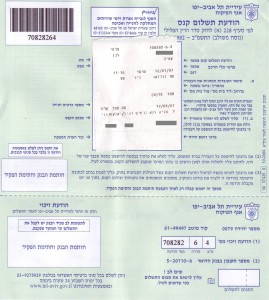Potential revenue from fines is almost an afterthought.

Credit: Yonidebest via Wikimedia Commons
Jerusalem, January 1 – Shocking new data have emerged showing that contrary to the widespread assumption that city employees must issue a certain minimum number of parking violation tickets per week or month, the minimum that in fact exists pertains to provoking insults or shouting by vehicle owners.
Snippets of city documents obtained by journalists indicate that the parking enforcement division of the Jerusalem Municipality requires its inspectors to engage not in mere writing of parking tickets, but to ensure that at least a certain portion of the recipients of those tickets react to them as if slapped in the face or had their parentage questioned.
Car operators have long asserted, and municipal officials have long denied, that the city imposes a quota on its parking enforcers that forces them to issue tickets even when circumstances or basic humanity does not warrant it. The new findings have vindicated both the accusers and the city’s denial, the former because a quota does exist, the latter because the quota in the original accusations does not.
“We told you,” stated a municipal official who spoke on condition of anonymity, echoing verbatim an advocate for better traffic policies.
Experts admitted surprise at the revelation. “I could have told you there was a quota,” conceded urban policy consultant Mia Kulpa. “But I wouldn’t have dreamed of this – it means our assumption of the guiding assumptions behind municipal policy is way off.”
“Most of us tend to think of driver frustration and anger as an unwelcome side-effect of parking regulation enforcement,” agreed civil engineer Roshqatan Jobsworth. “But it turns out that’s not it at all. In fact this discovery shows how wrong we’ve been – and that in reality the entire point of the enforcement guidelines is specifically to generate that frustration and anger, with potential revenue from fines almost as an afterthought, which we should have realized makes more sense because it doesn’t generate anywhere near enough revenue to justify its costs. Now we have to go back and reexamine numerous other municipal policies through that lens, and I don’t just mean in terms of parking, driving, or cars: I mean construction, infrastructure, sanitation, public health, education, child care, utilities, zoning, you name it. And come to think of it, assuming the administrative goal is frustrating and angering the citizen or tourist helps us explain many, many anomalies in municipal policy, and, I’m realizing now, goes far, far beyond the municipality and extends all the way through the national government and institutions.”
Please support our work through Patreon.




